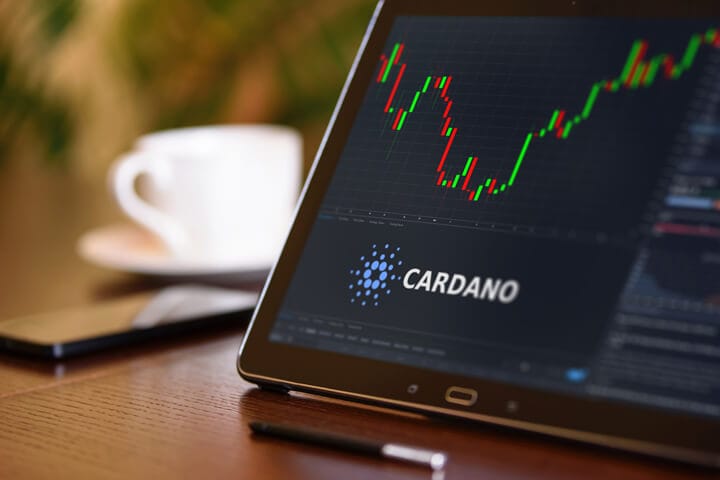Getting liquidated in the cryptocurrency market can be a devastating experience if not managed properly. Liquidation occurs when a trader’s position is closed out due to insufficient funds or margin requirements being met. This typically happens when the market moves against the trader’s position and their margin balance falls below a certain threshold set by the exchange or broker they are using for trading purposes. When this happens, all open positions are forcibly closed at market prices and any losses incurred are taken from the trader’s account balance or margin balance (if applicable).
Author
-
Meet David, the maestro of social media enchantment at Galaxy Marketing. With a keen eye for trends and a flair for strategic storytelling, David turns pixels into engagement gold. In the digital cosmos, he's the navigator steering brands to stellar success. 🚀✨ #GalaxyMarketingExpert
In this article, we will discuss what it means to get liquidated in crypto, why it happens, how to avoid it, and the impact that liquidations can have on your portfolio.
What Is Liquidation in Crypto?
Liquidation is a term used to describe when a trader’s position is closed out due to insufficient funds or margin requirements being met. This typically occurs when the market moves against the trader’s position and their margin balance falls below a certain threshold set by the exchange or broker they are using for trading purposes. When this happens, all open positions are forcibly closed at market prices and any losses incurred are taken from the trader’s account balance or margin balance (if applicable).
Reasons for Liquidation in Crypto:
There are several reasons why traders may find themselves facing liquidations when trading cryptocurrency markets; most commonly these include: having too little capital available to support their positions; taking on too much leverage; failing to monitor their positions closely; or entering into trades without considering potential risks involved. Additionally, sudden drops or spikes in price can also lead to liquidations if traders do not manage their risk appropriately or adjust their positions accordingly when market conditions change dramatically.
Types of Liquidation in Crypto:
Two main types of liquidations can occur when trading cryptocurrencies – automatic and manual liquidations. Automatic liquidations happen automatically when a trader’s account balance falls below a certain level set by their exchange or broker; manual liquidations occur when a trader manually closes out their positions before they reach this level (or if they decide they want to exit the trade early). Both types of liquidations will result in losses being incurred but manual ones often allow traders more control over how much risk they take on as well as provide them with more time to react if market conditions change suddenly.
How To Avoid Liquidation In Crypto:
The best way to avoid getting liquidated while trading cryptocurrencies is by managing your risk appropriately and setting stop-loss limits on your positions so that you can limit potential losses should prices move against you unexpectedly. Additionally, it is important for traders to always keep an eye on their account balances and leverage levels so that they do not end up taking on too much risk or entering into trades without considering potential risks involved beforehand (which could lead them into dangerous territory). Finally, it is also important for traders to use proper money management techniques such as diversifying across different asset classes and regularly rebalancing portfolios so that they remain within acceptable levels of risk tolerance at all times – this will help ensure that any losses incurred due to unexpected price movements remain manageable and do not cause serious harm to portfolios overall performance over time.
Impact Of Liquidation On Your Portfolio:
Getting liquidated while trading cryptocurrency markets can have a significant impact on your portfolio depending on how much capital was invested initially as well as how much leverage was used during trades – larger amounts of capital put at risk will naturally lead to larger losses should trades go wrong whereas smaller amounts invested with less leverage will generally lead to smaller losses overall (although these still need careful management!). Additionally, getting liquidated can also cause psychological damage as it often leads traders to feel frustrated and disappointed with themselves – however, it is important for traders not to let emotions cloud judgment after experiencing such events as this could lead them into making further mistakes down the line which could worsen any existing financial damage already done by prior trades gone wrong!
Conclusion:
In conclusion, getting liquidated while trading cryptocurrencies can be a devastating experience if not managed properly – however, understanding what causes such events (and how best to manage them) can help minimize potential losses and prevent further damage from occurring down the line! If you would like more information about avoiding such situations then please check out our social media marketing services where we provide tips & advice regarding successful crypto trading strategies!
Check Out Galaxy Marketing’s Social Media Marketing Services!:
Here at Galaxy Marketing, we specialize in helping our clients achieve success through social media marketing campaigns tailored specifically to your business needs! Our team of experts has years of experience creating successful campaigns across various platforms including Facebook & Instagram – we understand what works best for each platform & target audience so you don’t to worry about wasting valuable resources trying to figure out what works & what doesn’t! Contact us today to find out how we can help you take your business next level!
FAQ
What happens when you get liquidated?
Liquidation is when an investor closes their position in an asset. Liquidation of an asset typically occurs when an investor or portfolio manager needs cash to redistribute funds or restructure a portfolio. A non-performing asset may be partially or fully liquidated.
What happens when the crypto loan is liquidated?
If you fail to repay the loan in full by the due date we will forfeit your collateral to cover the outstanding amount. The remaining liquidation amount will be returned to your Crypto.com exchange wallet.
Where does liquidated crypto go?
The term liquidation simply means to convert assets into cash. In cryptocurrency, trading liquidation is the involuntary conversion of a cryptocurrency asset into cash or its equivalent (eg stablecoin). A forced liquidation occurs when a trader fails to meet the margin requirements set for a leveraged position.
Where does liquidated money go?
If the liquidator is trading the business he can use the funds in the unsecured business to cover transaction costs after the liquidation before paying any other debts. After the trustee’s fee are the court costs associated with the liquidation if the court agrees.
Can you lose crypto by providing liquidity?
Some cryptocurrency pairs are more volatile than others so providing liquidity to them increases the risk of temporary losses.
Can you get money back from crypto losses?
If you sell crypto at a loss you can deduct it from your other portfolio gains and if your losses exceed your gains you can deduct up to $3000 from your ordinary income says Lisa Green-Lewis a tax specialist and certified public accountant. in TurboTax) explained. .
Author
-
Meet David, the maestro of social media enchantment at Galaxy Marketing. With a keen eye for trends and a flair for strategic storytelling, David turns pixels into engagement gold. In the digital cosmos, he's the navigator steering brands to stellar success. 🚀✨ #GalaxyMarketingExpert
Unlock the Secrets of What is Osmosis Crypto!
February 22, 2023
Osmosity Crypto provides fast and secure transactions for digital assets with low fees and nan technology to reduce congestion. It also offers added security through its smart contract feature, making it a popular choice in the crypto world.
0 Comments8 Minutes
What is Leverage in Crypto? Uncover the Secrets of Trading with Leverage!
February 22, 2023
Maximize profits and minimize risks with cryptocurrency trading using leverage. Understand the different types of leverage available, the associated benefits and risks, and how to use it safely for successful trading.
0 Comments8 Minutes
Has Crypto Bottomed? Learn What Analysts Say Now!
StickyCrypto
February 22, 2023
Cryptocurrency is a digital asset used as a medium of exchange. Factors influencing its price include supply & demand, news events, speculation, technical & fundamental analysis. Is crypto at its bottom? Analyze charts & underlying economic factors to make informed decisions on whether now is a good time to invest.
0 Comments9 Minutes
Is Crypto the Future? Unlock the Possibilities of Tomorrow Today!
StickyCrypto
February 22, 2023
Cryptocurrency is a digital currency that offers high security, low fees and fast transactions. NAN is a type of cryptocurrency with advantages such as no fees, instant transaction speed and smart contracts support. Discover why crypto may be the future of finance!
0 Comments8 Minutes
What is Bayc NFT? Unlock the Possibilities of Non-Fungible Tokens!
StickyNFT
February 22, 2023
Experience secure & efficient trading of digital assets with Bayc NFT! Enjoy access to liquid markets, a wide range of digital assets, low fees & more. Get in touch with us for social media marketing services today!
0 Comments10 Minutes














